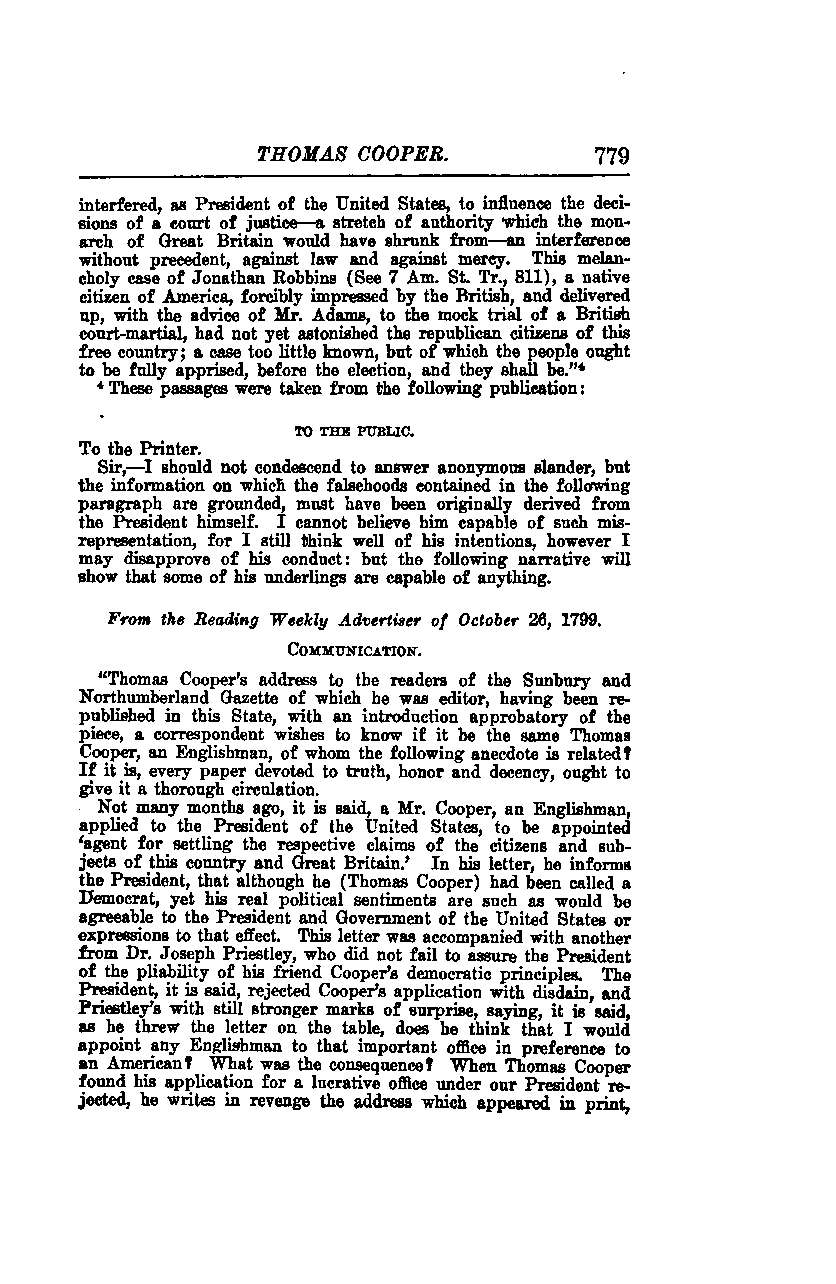
Here is the translated text as follows:
THOMAS COOPER
The case of Jonathan Robbins is a melancholy example of presidential overreach. As President of the United States, an individual interfered to influence the decisions of a court of justice—a stretch of authority that even the monarch of Great Britain would have hesitated to undertake. This interference was unprecedented, against the law, and devoid of mercy. Jonathan Robbins, a native citizen of America, was forcibly impressed by the British and delivered, with the advice of Mr. Adams, to the mock trial of a British court-martial. This case had not yet shocked the republican citizens of this free country, but it is one that the people ought to be fully informed about before the election, and they shall be. (See 7 Am. St. Tr. 811)
These passages were taken from the following publication:
To the Printer
Sir, I would not normally condescend to respond to anonymous slander, but the information on which the falsehoods in the following paragraph are based must have been originally derived from the President himself. I cannot believe him capable of such misrepresentation, for I still think well of his intentions, even if I disapprove of his conduct. However, the following narrative will demonstrate that some of his subordinates are capable of anything.
To the Public
From the Reading Weekly Advertiser of October 26, 1799, Communication:
Thomas Cooper's address to the readers of the Sunbury and Northumberland Gazette, of which he was the editor, was republished in this state with an introduction approving of the piece. A correspondent wishes to know if it is the same Thomas Cooper, an Englishman, of whom the following anecdote is related. If it is, every paper devoted to truth, honor, and decency ought to give it thorough circulation.
Not many months ago, it is said, Mr. Cooper, an Englishman, applied to the President of the United States to be appointed as the agent for settling the respective claims of the citizens and subjects of this country and Great Britain. In his letter, he informed the President that although he (Thomas Cooper) had been called a Democrat, his real political sentiments were such as would be agreeable to the President and Government of the United States, or expressions to that effect. This letter was accompanied by another from Dr. Joseph Priestley, who assured the President of the pliability of his friend Cooper's democratic principles. The President, it is said, rejected Cooper's application with disdain and Priestley's with even stronger marks of surprise, reportedly saying, as he threw the letter on the table, "Does he think that I would appoint any Englishman to that important office in preference to an American?" What was the consequence? When Thomas Cooper found his application for a lucrative office under our President rejected, he wrote in revenge the address that appeared in print.